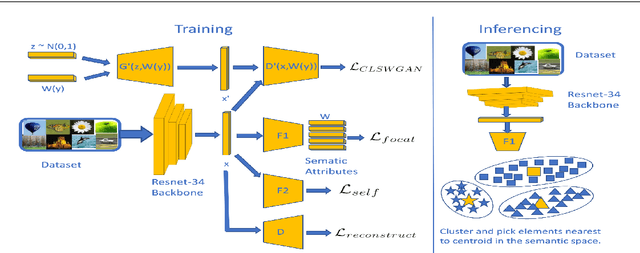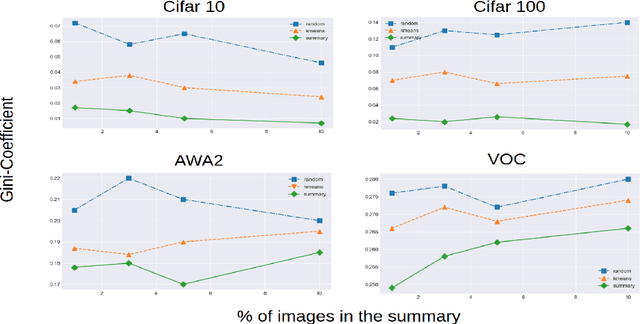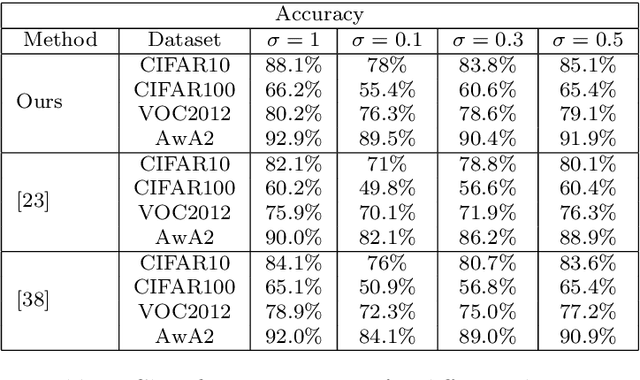Deepak Kumar Sharma
Self-Supervision based Task-Specific Image Collection Summarization
Jan 01, 2021



Abstract:Successful applications of deep learning (DL) requires large amount of annotated data. This often restricts the benefits of employing DL to businesses and individuals with large budgets for data-collection and computation. Summarization offers a possible solution by creating much smaller representative datasets that can allow real-time deep learning and analysis of big data and thus democratize use of DL. In the proposed work, our aim is to explore a novel approach to task-specific image corpus summarization using semantic information and self-supervision. Our method uses a classification-based Wasserstein generative adversarial network (CLSWGAN) as a feature generating network. The model also leverages rotational invariance as self-supervision and classification on another task. All these objectives are added on a features from resnet34 to make it discriminative and robust. The model then generates a summary at inference time by using K-means clustering in the semantic embedding space. Thus, another main advantage of this model is that it does not need to be retrained each time to obtain summaries of different lengths which is an issue with current end-to-end models. We also test our model efficacy by means of rigorous experiments both qualitatively and quantitatively.
Application of Fuzzy Mathematics to Speech-to-Text Conversion by Elimination of Paralinguistic Content
Sep 20, 2012


Abstract:For the past few decades, man has been trying to create an intelligent computer which can talk and respond like he can. The task of creating a system that can talk like a human being is the primary objective of Automatic Speech Recognition. Various Speech Recognition techniques have been developed in theory and have been applied in practice. This paper discusses the problems that have been encountered in developing Speech Recognition, the techniques that have been applied to automate the task, and a representation of the core problems of present day Speech Recognition by using Fuzzy Mathematics.
* 6 pages, 3 figures, 1 table. arXiv admin note: text overlap with arXiv:1001.2267 by other authors
 Add to Chrome
Add to Chrome Add to Firefox
Add to Firefox Add to Edge
Add to Edge